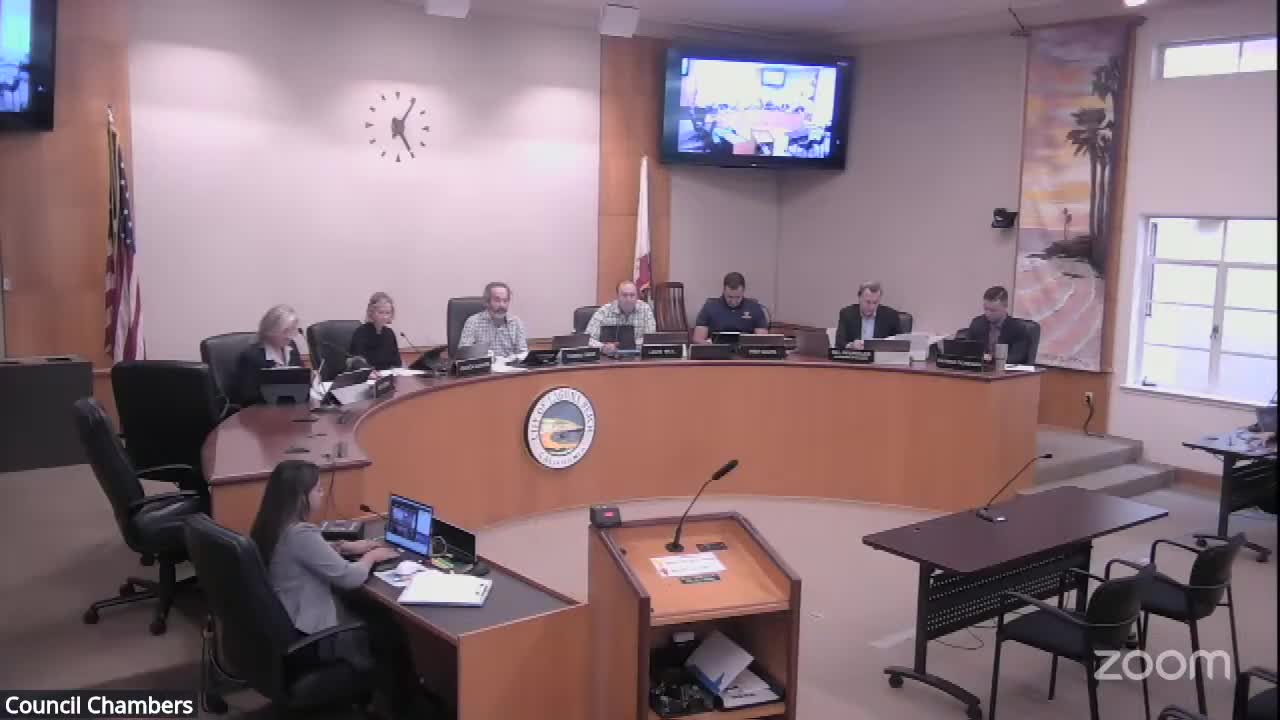Design review board denies Short Street second‑story addition after third hearing
Get AI-powered insights, summaries, and transcripts
Subscribe
Summary
Laguna Beach Design Review Board denied a proposed major remodel and second‑story addition at 607 Short Street after a third hearing, citing unresolved view equity, massing and public‑safety concerns. The board also flagged drainage and retaining‑wall issues affecting the neighbor to the north.
Laguna Beach Design Review Board members voted to deny a proposed major remodel and two‑story addition at 607 Short Street after the project returned for a third hearing on Oct. 9. The board’s decision followed more than two hours of public testimony, repeated requests from neighbors and extended discussion among members about view equity, neighborhood compatibility, and fire‑and‑construction safety.
The applicant, represented at the meeting by project team members and an architect, proposed a roughly 840‑square‑foot second‑floor addition, a lower‑level expansion and a small attached garage ADU. Staff described the latest plans as a “major remodel” and said the applicant had reduced building depth and altered rooflines after earlier comments. Shavita Sharma, senior planner, summarized the submittal for the board and said staff recommended approval.
Neighbors and several board members disputed that recommendation. Allison Mahoney, a long‑time adjacent resident, told the board that the family “are not against an improvement or a second story,” but that the current design “does not solve any of these issues” and left the family without realistic options to protect their privacy and light. Attorney Steve Kuwaratani, speaking for neighbors, said the proposal was “two and a half times larger than the average size of homes in the general vicinity” and warned it would overwhelm the street and block important hillside views.
Board chair Jared Gibbs said he had visited properties on the block and balanced the applicants’ development rights against neighbors’ interests. He acknowledged the project’s design changes but said the plan still “takes the neighbor’s primary … hillside views” and that he was not ready to find the project compliant with the board’s view‑equity guidance. Other board members cited the project’s massing, lack of articulation on the rear elevation and continued concerns about privacy and construction staging in a narrow neighborhood.
Board members also raised a technical, safety‑related issue: a retaining wall and proposed grade changes on the uphill side of the lot that could alter runoff into the neighbor’s yard. Neighbor Mark Miller, who lives immediately to the north, said the proposed wall and grade change could leave his yard “a lake when it rains” unless drainage details are engineered to protect existing crawlspace access and soils.
After deliberations the board voted to deny the application. The formal motion to deny carried on a 3‑2 roll call vote (Belta: No; Kavnie: Yes; Weil: Yes; Gannon: Yes; Gibbs: No). The board indicated the record should show that denial was driven principally by unresolved view‑equity concerns, massing and a lack of satisfactory assurances about grading/retaining‑wall drainage that would protect the adjacent property.
The applicant may revise the proposal and return to the board; the denial does not prevent a new application that addresses the board’s findings.
The board’s discussion separated three threads: technical/engineering items (drainage and retaining wall design), design items (massing, roofline, articulation) and policy items (view equity and neighborhood compatibility). The board noted several possible remedies — including stepping the structure down, relocating upper‑level program, adding articulation, and engineering a retained drain system — but said none of those were sufficiently documented or guaranteed in the current package.
